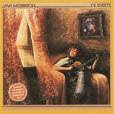 Today, while reading the New York Times, a couple of articles I read intrigued me and made me think of the future.
Today, while reading the New York Times, a couple of articles I read intrigued me and made me think of the future. One was Skype. The article told how Skype, which has brought cheap internet-based phone service phone service to millions, was going to add mobile phone service. The article mentioned that Skype had brought cheap VoIP (Voice over Internet Provider) based phone service to 400 million users. That's about 8% of the planet.
Another was about how European newspapers have fared better than their American counterparts, in part because of better use of their internet versions. Yet another article was about how AMC movie theaters were going convert their theaters to 100% digital projectors over the next few years. Movies will be streamed over the internet to the theaters, where they will be stored on hard drives.
 I remember years ago, my late friend Mark showing me this marvel, the internet, in 1994 or so. When he'd described it to me, I was skeptical. It sounded like a fad, like CB radio was in the seventies. We sat at his computer and he told me to come up with any question, something I'd wanted to know, but couldn't find the answer to. The first thing that popped in my mind was "Don't Go Back to Rockville," the REM song. He and I and all our friends in college had become fans of REM from the start. Their first couple of albums were notorious for their cryptic, half-mumbled lyrics. "Rockville" was hands down our favorite-- but we had no idea what the lyrics were.
I remember years ago, my late friend Mark showing me this marvel, the internet, in 1994 or so. When he'd described it to me, I was skeptical. It sounded like a fad, like CB radio was in the seventies. We sat at his computer and he told me to come up with any question, something I'd wanted to know, but couldn't find the answer to. The first thing that popped in my mind was "Don't Go Back to Rockville," the REM song. He and I and all our friends in college had become fans of REM from the start. Their first couple of albums were notorious for their cryptic, half-mumbled lyrics. "Rockville" was hands down our favorite-- but we had no idea what the lyrics were. Mark opened a browser-- the first time I'd seen an internet browser-- and ran a search. Within a minute, we had the lyrics, which he printed up for me.
I was hooked. Pretty soon, I was hooked up too, through Tezcat, a long-gone local ISP. Over the years, I was able to get books and music I'd been looking for forever. I found long-lost friends and was able to keep in much better touch with friends and family. I pay my bills online, email back and forth with people, check my bank account, and a bunch of things. I did most of my Christmas shopping online. I rent movies through Netflix, and will soon try their streaming. I bought the textbook and dissection kit I needed for my Anatomy class online. I started Facebooking recently, and was rewarded with contact with another wave of people I'd long given up hope of finding. My home phone service is over the internet, through Vonage.
When Mark, the guy who'd gotten me onto the internet, was killed in a robbery a few years ago, I first found out through an email. We set up a Yahoo group to disseminate information about his funeral, dealing with his estate and progress in his case. He would have found it amusing and ironic.
The internet has changed things, especially newspapers. As someone I knew who was in sales of newspaper ads said, how do I sell an ad in a newspaper when people can use Craigslist for free? In the old days, newspapers were filled with classified ads, which were their bread and butter. Ad revenues have plummeted catastrophically. Major newspapers are in trouble-- this has affected close friends of mine. Even today, the New York Times had an article about how the venerable institution the San Francisco Chronicle is in deep trouble.
So where is this all going?
I have no idea. But as a student of history, I know that every change in technology and infrastructure, such as railroads, telegraphs, telephones, personal computers, radio, air travel and television, have had unforeseen consequences, some bad, but mostly good in the end. With each of these things, after some uncertainty, society has adjusted and thrived, with new opportunities-- and jobs.
Not too long ago, I was talking about it all with my old friend Tim, who works in the newspaper business. He said that it was clear that the business model for journalism is changing for sure, but no one is sure how. It's difficult, he said, to separate the change in the business from the current recession. How much is each responsible for the problems in the newspaper business? We won't really know until the flush times return-- and they will inevitably return. And the newspaper business will come back up with it. It may be a little different, but in the end, I don't believe that people will want to give up their newspapers-- even if it's on a laptop or a Kindle. I know I'm not giving up my New York Times.

























